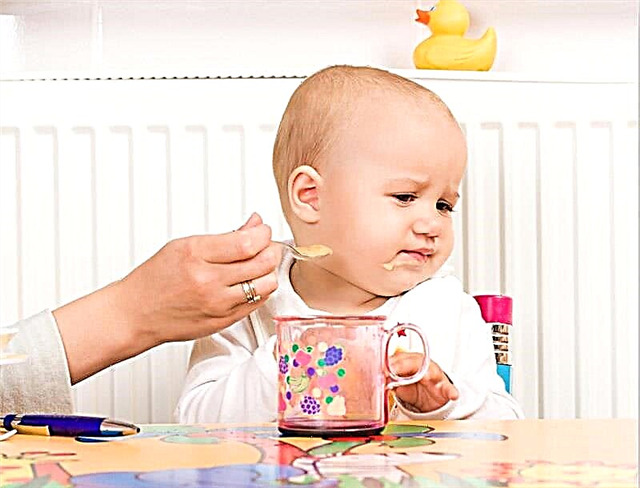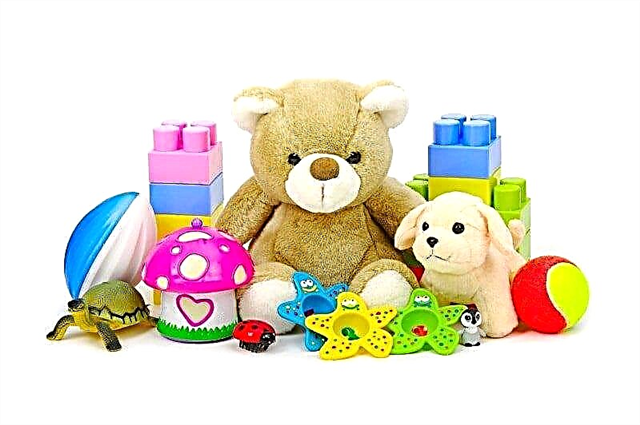Safety rules apply to many areas of life for us and our children. Below we will talk about what questions children should not answer to strangers (and even familiar people). Practice with children and bring these rules to automatism. 10 types of questions that a child should not answer even an adult - for ethical reasons or for their own safety.
Young children are open and spontaneous - they do not expect a dirty trick from others and are ready to share any information. This is not only cute but also dangerous. After all, not always and not everyone can be told certain information. You may not always have control over who will ask your child and what. Therefore, it is so important to know those types of questions, the answers to which the child should not give to any of the strangers and even familiar people. Having taught your baby this in time, you can save him from awkward situations, troubles and danger. Children grow up very quickly, and you won't be able to be around all the time. Having discussed all the nuances of such questions with your child in advance, you can let him go to school or for a walk with a lighter heart.

Inappropriate questions and expressions are more common among children. But sometimes it happens that an adult is able to ask a completely ridiculous or tactless, even dangerous question to your child. One day your little one will grow up and will communicate with other people without supervision. Even a crumb on the playground has the opportunity to meet a stranger. And for children who have already gone to school, the likelihood of such a meeting increases many times over. Simplicity, openness and willingness to tell everything about your life does not always lead to good.
You should know 10 types of questions, the answers to which the child should not give even to familiar people. And he must do this not only for ethical reasons, but also for the sake of his own well-being and safety.
1. Questions about the address of residence
Even if your child is still young, and you do not leave him alone anywhere, he will still know better that in normal situations it is better not to communicate with strangers. A simple "hello" or "thank you" is enough, depending on the situation. If it happened that the child is lost, then he will have to turn to outsiders for help (this situation is unusual). It is very important to discuss with your baby in advance all those things that should not be discussed with strangers.
Remember, a child (especially a small child) will not be able to figure out on his own, will not be able to assess the situation and will not be able to independently navigate which questions should not be answered.
Strangers (even if he introduced himself as your new neighbor) absolutely cannot answer the following questions: “What is your address?”, “Where do your windows go?”, “What apartment do you live in? / What is your apartment number? "," Who do you have at home? "
Of course, an exception may be emergency situations when help is required immediately - for example, one of the adults at home became ill, a pipe burst in the apartment, a quarter, etc.
But, unfortunately, statistical data claim that the greatest danger is posed by familiar people who know perfectly well where the child lives.
The child needs to be explained that a neighbor, a grandmother whom they meet every day on the way to kindergarten / school, a nice woman or any other NOT suspicious people - they are all beyond the circle of trust.
2. Questions about when a child is alone are prohibited
The fact is that children trust a familiar person much more, therefore they can easily answer in detail all the questions that interest him. Teach your kid that even neighbors and friends should not be told about the time when he is alone. Questions: “What time do you go for a walk?”, “Do you walk alone, without your parents?”, “When are you at home alone?"Must be ignored by the child.

Remember that adults may ask the above questions in a more subtle way: “And who are you at home now?”, “Until what time are classes at school?”, “How long are your parents working?”, “Are you afraid when you are left alone?”, “Who are you with while your parents are at work? "
It is hard even to imagine why an adequate adult would need such information. An outsider should not be interested in this at all, so the child may simply not answer.
3. Questions about departures
This is another category of questions, the answers to which should become taboo for your little one. “Where are you going on the weekend?”, “Are you going to the dacha for a long time?”, “Are you going to the sea this summer?”, “Who will water the flowers in your house?”. It is normal for adults to ask each other such questions, but not to children. If you need to be away from home for a couple of days, warn the neighbors about this and note that you did not leave the keys to anyone.
Ask yourself why unfamiliar people who don't even communicate with you are interested in such things. It is unlikely that out of simple curiosity. Perhaps they are interested in this, hoping that the kid will naively give out any information, and then quickly forget this conversation.
4. Questions about help
Some of the most dangerous are such questions when a stranger or unfamiliar person asks a child for help or offers it to him without special need or agreement with the child's parents.
For instance, "Please walk me to that house", "Help me bring my bags home from the store" or "Can I walk you home?", "Let's do math together?"

An adult should not ask a child to go with him to the basement for a kitten, to a neighboring house or for help.
Be sure to teach your child to respond with a clear refusal. You shouldn't come up with any valid reasons. “Sorry, but no” would be the most ideal answer.
5. Money matters
From an ethical point of view, even in the world of adults, the discussion of financial situation is not correct. But there are people for whom the topic of finance is so important that they can even ask a child: "How much does your father get?", "Where do you keep money at home?", "How much did the trip to the mountains cost you?" ...
Why do people need this information? This does not mean, of course, that they are necessarily going to rob you.
Perhaps they just need financial help - they want to ask you for a loan. There are other motives: pass this data on to your ex-husband / wife, condemn you for “helping little elderly parents”, discuss your financial situation with friends, or condemn for “waste” - for example, you bought a car, and your child goes to old shoes, or just discuss with neighbors on the bench how you "chic" or "make ends meet" ... etc ...
6. Offensive questions
Not all issues threaten the safety of children, sometimes they simply offend or humiliate the child. Difficult teenagers and simply angry people like to ask this category of questions. Sometimes it also happens that a person unconsciously puts the child in an awkward position by asking one of the following questions: “Do you stutter from birth?”, “How much do you weigh?”, “Why are you not as strong as your brother?”, “Why are you studying worse than your younger sister?"," Why don't you look like a beautiful sister at all "... and so on.

Such offensive questions should be ignored by children. And it will be even better if you teach your son or daughter how to properly respond to such boorish treatment.
Should I respond with rudeness to rudeness? Hardly. The answer directly depends on the child's communication skills, experience, and sometimes courage. You can explain to the child how to be in such situations, based on his age, character, behavior.
7. Questions about family secrets
If you want the secrets within the family to remain secrets, it is better not to tell them even to your child. But this is not always the case.
Each family has its own secrets, and therefore the questions can be varied. Most often, a family secret may suggest the presence of some unpleasant fact. This leads to the following questions: “And your parents are really not relatives?”, “Your mother probably rarely does housework?”, “Was your grandmother taken to a psychiatric clinic?”, “Did your sister have an abortion?”, “Who is your own dad?” , "Was Grandpa fired for drunkenness?"
You should teach your child to simply ignore such questions. People ask them out of stupid curiosity. At the same time, they are so ignorant that they forget that such conversations can deeply traumatize the fragile child's psyche.
Sometimes with the help of children, acquaintances, relatives or friends try to find out information. It is worth explaining to the child that issues of health, finances, personal relationships within the family are the business of the family itself, and not of outsiders.
8. Awkward questions
Question "Do you know who threw out the trash at the entrance yesterday?" can embarrass the child if he is involved in the story. But children should answer such questions, even if it is unpleasant.
But it's definitely not worth giving answers to questions that are too personal or those that cause frank embarrassment. Initially, this includes all sorts of questions of an intimate nature. For example, a young girl can safely ignore the question of her virginity, even if asked about it by a relative. The child may also not answer the question of whether the parents sleep together.
9. Questions about the privacy of others
It goes without saying that polite questions like "How is your grandmother's health?" are a manifestation of ordinary friendly concern.

But if an adult is trying to find out personal information from a child about some acquaintance of the family, he can be safely ignored. “What did your parents give Aunt Inna for her anniversary?”, “Does the man who takes care of mom have children of his own?". Most often people ask this in children. After all, they understand that it is simply impolite and unethical to ask adults about it.
10. Provocative questions
Another category of questions that is fraught with danger. These kinds of questions are designed to provoke a child into a certain and, probably, unsafe act. "Is it too weak for you to act like that ..?", "Let's bet that it won't work out for you ..?" - most often such questions are not asked at school competitions, when it comes to getting the first place in the 100 meter race ...
And this is a real and dangerous trick that schoolchildren are being led to. And your child should definitely know about it.
- 10 precautions parents should teach their child
- How not to lose your child in an unfamiliar place: 5 simple tips
- How to teach a child to talk to strangers on the street
- A stranger sticks to a child - what should children do?



